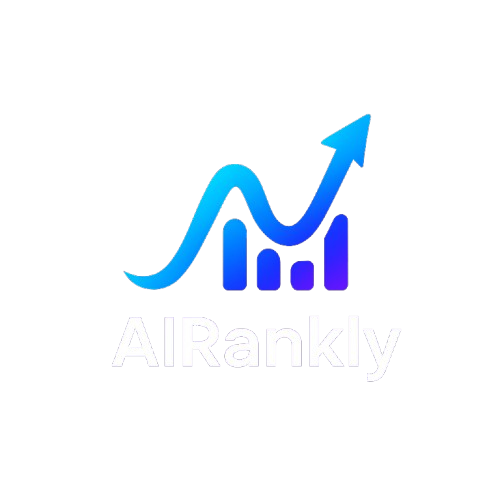
llms.txt Standard
Control how your content is accessed, quoted, summarized, or cited by AI language models (LLMs) such as ChatGPT, Claude, Gemini, and others.
llms.txt protocol is still in its early adoption phase. However, it is gaining traction among AI developers and SEO professionals who want more control over how large language models (LLMs) interact with their websites.
🧠 What is llms.txt?
llms.txt is a proposed standard designed to give website owners more control over how AI language models (LLMs) such as ChatGPT, Gemini, Claude, and Perplexity access and use their content. Much like robots.txt gave webmasters the ability to communicate with search engine crawlers, llms.txt introduces a new layer of transparency and control for content indexing, summarization, citation, and AI training.
It is a plain text file placed at the root of your domain (e.g., https://example.com/llms.txt) that outlines permissions, restrictions, and content usage policies for different AI agents.
📄 Sample `llms.txt`
# ======================================== # LLMs Access Directives for airankly # Website: http://airankly.local # Last Updated: 2025-08-26 # ======================================== User-agent: * Crawl-delay: 5 # Access Rules Allow: / # ======================================== # AI Usage & Permissions # ======================================== Provide-Citation: true Preserve-Context: true Preserve-Formatting: true Allow-Excerpting: true Allow-FullUse: false Allow-Training: true # ======================================== # Publisher Identity # ======================================== Publisher: airankly Publisher-URL: http://airankly.local Organization-Type: Website # ======================================== # Contact Information # ======================================== Contact-Email: dev-email@wpengine.local Jurisdiction: International # ======================================== # Priority Pages for Citation & AI Crawlers # ======================================== Priority-Pages: http://airankly.local/sample-page/ http://airankly.local/hello-world/ http://airankly.local/test/ http://airankly.local/new-test/ # ======================================== # Usage Restrictions # ======================================== Data-Use-Purpose: Public learning, AI search citation, Educational use Prohibited-Use: Commercial resale of data, AI-generated clones of site Preferred-Usage: Cited use with original page URL and site name # ======================================== # Sitemap Reference # ======================================== Sitemap: http://airankly.local/sitemap-ai.xml
📚 Fields Explained
- User-agent: The AI tools allowed (e.g., * means all)
- Cite-as: Your preferred attribution URL
- Contact: Who to contact for usage questions
- License: The license applied to your content (e.g., CC BY 4.0)
- Summary-policy: Whether AI is allowed to summarize your content
- Transformation-policy: Whether AI can transform your content
🛡️ Why It Matters
- Helps AI crawlers understand your boundaries
- Prevents unauthorized use of sensitive pages
- Improves AI attribution and quoting accuracy
- Prepares your site for the rise of LLM-powered search and chat tools
📊 Benefits of Implementing llms.txt
- Transparency: Communicate your intentions clearly to AI developers.
- Respect: Avoid unauthorized use of sensitive or monetized content.
- Future-proofing: Prepare your site for upcoming AI regulations and bot behaviors.
- Attribution: Demand proper citations when AI tools reference your work.
🚀 Future Adoption & Support
The llms.txt protocol is not yet standardized by any single body (e.g., W3C), but major industry players are beginning to respect its contents voluntarily. Future legislation (like the EU AI Act or U.S. AI rules) may also reinforce its use.
AIRankly is committed to keeping this specification updated in line with real-world adoption and AI tool evolution.
✅ Use with AIRankly Plugin
When using the AIRankly plugin, your llms.txt is auto-generated and updated. It will:
- Respect your AI-specific content preferences
- Auto-detect sensitive pages (e.g. login, payment)
- Automatically declare summarization and citation rules
✅ How to Create `llms.txt`
🛠 Manual Method
- Open a text editor (Notepad, VSCode, etc.).
- Write structured policies and preferred content details (see below).
- Save as
llms.txtand upload to the root of your website.
⚡ Auto-Generate with AIRankly Plugin
If you use WordPress or any CMS supported by AIRankly:
- Enable the llms.txt Generator in the AIRankly plugin.
- The plugin will generate the file automatically with your site's metadata.
- The file will stay updated as your site evolves.
Your file will be live at:
https://yourdomain.com/llms.txt
Much like robots.txt, llms.txt serves as a guidance file—but tailored for LLMs that interpret, summarize, and cite your content.
Key Differences: llms.txt vs robots.txt vs sitemap.xml
- robots.txt: Manages crawling by normal search engine bots.
- sitemap.xml: Lists URLs for SEO indexing.
- llms.txt: Slices and annotates content specifically for AI indexing, summarization, citation, and training.
How AIRankly Simplifies Implementation
The AIRankly plugin auto-generates this file in your site root. It dynamically pulls preferred URLs, updates summaries, handles citation directives, and keeps it current as your content evolves.
📚 Resources
Final Thoughts
While the llms.txt protocol is nascent, building it into your AI content strategy now lets your site speak confidently to LLM-powered systems. It's a small effort with potential to vastly improve how AI represents your brand—with control, clarity, and accuracy.

